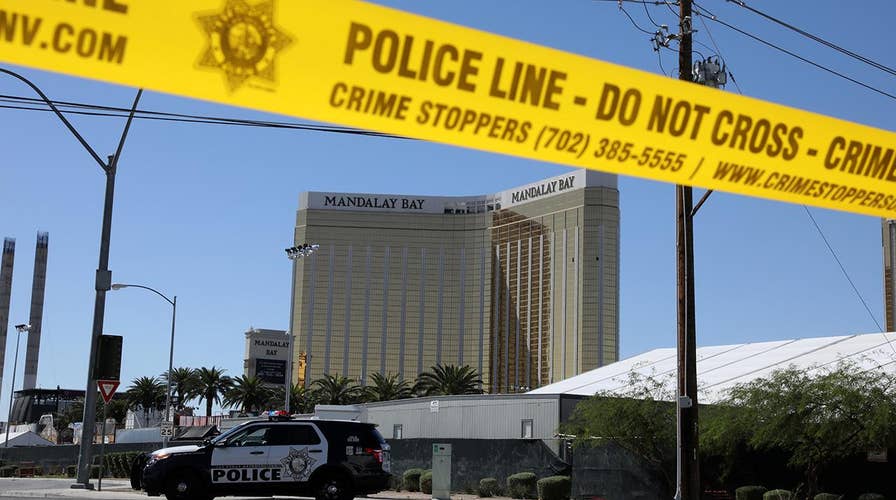Can future Las Vegas tragedies be prevented?
Can anything be done to prevent other mass shootings like the massacre in Las Vegas? #Tucker
As a staging area for a massacre, a high-rise Las Vegas hotel provided a perfect vantage point.
Mandalay Bay Hotel and Casino is used to seeing people coming and going at all hours, and it likely wasn't at all difficult for the gunman who killed more than 50 people and injured more than 500 attending an open air concert on the streets below to bring in a cache of weapons undetected to his 32nd floor hotel room. Suitcases can hide a multitude of sins, and he had days to bring in his firearms and ammo.
Stephen Craig Paddock, a 64-year-old retiree from Mesquite, Nevada, had a stockpile of rifles and other weapons in his room, where he'd been a guest since late last week. Conventioneers carting in large containers filled items they plan to put on display or sell, tourists with suitcases and shopping bags and resort-goers with golf clubs would be common at the 44-story, 3,000-room hotel.
Security experts say it's next-to-impossible without metal detectors or a massive change in typical U.S. hotel security standards to prevent someone from bringing in weapons or other contraband.
"You can bring a long gun in disassembled in a small suitcase. Nobody would think twice about somebody carrying in a golf bag, or something like a big snow ski bag," said Angela Hrdlicka, a former Secret Service agent who is now a private security consultant for parks and other professional sports. "Based on the amount of ammunition that this guy threw down there, he took more than one trip or he had a luggage cart that was carrying all this stuff."
The New York Times reported that hotels in India had major changes after the 2008 terror attack in Mumbai that killed 100. Major hotels in some Indian cities now have X-ray systems and explosive detectors. In some cases, hotels in the country employ facial-recognition software, the report said.
Thor Eells, executive director of the National Tactical Officers Association, said security can always be tighter. The question is to what extent and at what cost?
"You can make most any area or event very, very secure, if you're willing to spend a lot of money, a lot of resources and create a lot of inconvenience and that's not something a lot of people have a palate for," he said.
Jim Stover, a senior vice president of the real estate and hospitality practice at the Arthur J. Gallagher & Co, told The Times that explosive scanners and X-ray machines, like those seen in airports, will likely not be adopted by hotels due to customers’ privacy concern.
“The hospitality industry hasn’t gotten its act together in terms of antiterrorism,” he said. “It’s not going to be pushed, I has to be pulled.”
Paddock staged himself in a room on the 32nd floor of the hotel that towers over the Las Vegas Strip with a prime view of the Route 91 Harvest Festival taking place below. Authorities say he took a hammer to the window and began spewing a staccato beat of rounds to the crowd below. The shooter appeared to fire unhindered for more than 10 minutes as police searched frantically for the origin of the shots.
Investigators gave few details on the weapons used, but reported over the radio that they were faced with fully automatic fire.
Stephen Barth, a hotel security expert and professor at the Conrad Hilton College of Hotel and Restaurant Management at the University of Houston, said it wouldn't be unusual for housekeeping or other hotel staff not to know what he was storing in the room.
"The Mandalay Bay in particular hosts three, four, five conventions a day and it's not unusual for guests to have containers in their room," Barth said. "It would not be the common practice for housekeepers to get into those containers while they're cleaning the room. And as a matter of fact it would be just the opposite. Housekeepers are trained to respect guests' privacy, to not interfere with their items."
The concertgoers attending the music festival encountered wands used to detect firearms and pat downs before getting inside — far more security than the hotel guests encountered.
The Associated Press contributed to this report























